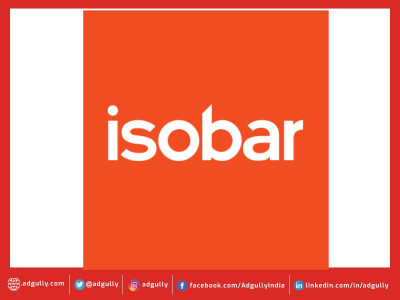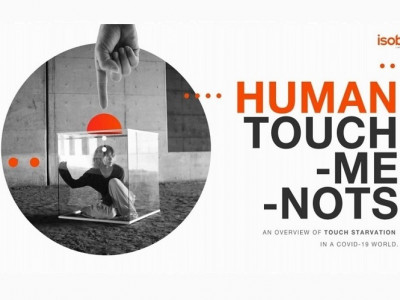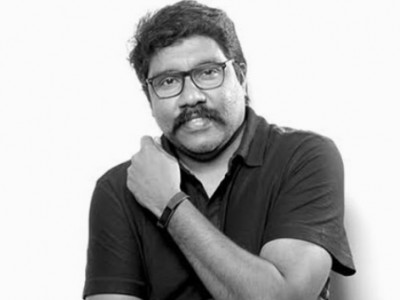The W-Suite | You can’t hide talent even if you want to: Prachi Karan
With a rapidly evolving business and economic landscape there is a dire requirement of fresh thinking, new skill sets, greater flexibility & adaptability, more collaboration as well as the ability to think on one’s feet.
Diversity in the workforce has become a necessity today, and more so in the leadership positions. It can’t be denied that women bring a high level of creativity and empathy while solving problems and handling crises. Women leaders bring to the table a different level of dexterity.
AdGully’s ‘The W-Suite’ series features interactions with influential women leaders in India, who share some deep insights on what being a woman leader means in India’s business landscape, the mantras to succeed, achieving work-life balance, pay parity and much more.
Prachi Karan is Media Director at Isobar India. She is also a part of Isobar’s Women’s Council. Karan recently represented Isobar at the Media Works 2017 workshop that was held in Hanoi, Vietnam. She has been awarded as India’s Top Digital Planner (2017) by Digital Market Asia and Business World. She has also received the Star Youth Achiever Award by Youth Marketing & Social Media Forum in 2016. An MBA from Welingkar’s Institute of Management Studies, Karan has been an active part of the digital industry since the beginning of 2011.
What defines a woman leader in today’s ecosystem?
In a word – ‘Fearless’ – and let me explain why.
Recently, I was working on a pitch for a beauty brand that wanted to speak to the women of today, particularly those who are the influencers that many other women look up to. The team and I at Isobar spent hours and days discussing, debating about what made this woman different from all the other women. Circumstances maybe, education and support – sure, but besides all of these there was one thing which was common that was tying all these exceptional women together. I am not a copy writer, so I am going to have to borrow some lines from Mark Anthony. I came across this while I was researching. I hope this gives you a slight visualisation of who she.
“And one day she discovered that she was fierce, and strong and full of fire, and that not even she could hold herself back because her passion burned brighter than her fears.”
Why do you think a smaller percentage of women than men reach the top of their professions?
I feel it is due to choice. A choice they have made voluntarily, or involuntarily. Maybe at that time she thought it was ‘either this or that’ and not ‘I may be able to figure out a way to do both’.
There is a very popular interview of PepsiCo Chairperson & CEO Indra Nooyi, where she talks about how she believes that ‘Women cannot have it all’. This happens because a woman’s career clock and biological clock are always in total conflict with one another, which is absolutely true. However, she also provides a solution to this constant issue – which is to develop coping mechanisms.
In reality nobody can have it all, but people still do believe that they can. And if you believe strong enough, things somehow come together and you have a solution. You have a solution most of the times, and for all the other times, there are coping mechanisms. But do note that adopting coping mechanisms or strategies constantly can be extremely fatiguing.
An example could be ‘The prove-it-again’ bias, where women are expected to repeatedly demonstrate their competencies more often than men before others believe they are fit to lead. This constant expectation of doing more, to be seen as equally good, can also take a toll over time. However, having a strong mentorship from colleagues and senior management really helps. The right counsel at a conflicting and critical time can change and completely transform a woman’s career.
Isobar India is one of the very few agencies in the country that has a Women’s Council team and strives to do exactly this. I am fortunate enough to be a part of this team and we have taken steps towards helping women reach their highest potential based on merit. One of the goals is to have more women in the organisation occupying leadership positions.
Do you think women leaders are still scrutinised as much for style as for substance?
I don’t think most of the women leaders really care about it. Their personalities are so vibrant and their belief in themselves and their work is so strong that people listen to them, and hold great value to their thinking and opinions. You simply cannot hide talent, even if you want to.
Do you think the leadership effectiveness of women is higher than men? Why?
I don’t think that gender matters as much as the life experiences do. Women generally do not have things easy when it comes to career. Along their way to leadership they have to make a lot of choices, deploy a lot of coping mechanisms, much more than the average men do. That kind of gruelling, challenging experience does make you tougher and that reflects in your work and how you handle things professionally. But then again, you put a man under similar circumstances and you would get similar results.
Women leaders in the 80’s and 90’s and women leaders today - what are the key differences? And what are the things that haven’t changed much?
In the 80’s or the 90’s only a certain percentage of women got the kind of support and backing needed to launch, grow and sustain a successful career. Today, that percentage has increased quite a bit – not as much as what we would like but yes, it is happening – and we are all watching it evolve. This can largely be attributed to the shift in the mindsets of people as the society has also progressed. This has increased the level of confidence in women and is a step forward towards gender equality. The change is here, it is happening. These are exciting times.
How do you maintain a balance between career goals and family responsibilities? How frequently do you have to sacrifice one for the other?
It is not easy because you constantly have to choose and juggle between the various professional and personal roles that you play. This also holds true for some of the men, because relationships today have evolved and the concept of equality is beginning to reflect in society. We all need a lot of support, collaboration and backing at work from our colleagues and at home from our family and friends. The degree changes depending on the life stage you are at and the choices you have voluntarily made.
Do you think pay parity exists in our corporates today across levels? What about pay parity at the leadership levels?
Yes, it does exist – across industries and businesses. To bridge this gap, we need more than just women supporting women. We need the men also to come forward and support us. We need to educate women on how to negotiate better pay. I very much believe in the HE FOR SHE campaign that was launched by Emma Watson. This championing by men would be a strong factor in bringing gender equality.
What would be your advice to women aiming for the C-suite?
There are two things:
- Have Grit. Stick with your future day in, day out. Not just for the week, not just for the month, but for as long as you intend to work.
- Do not be satisfied. Ever. You can go as far as you can imagine you can go, and imagination is an extremely powerful tool.
What, according to you, are the 3 important lessons new women leaders need to learn?
Lesson One – Be Humble. Humble enough to see your mistakes, admit them, learn from them and adapt to a better version of yourself.
Lesson Two – Trust your instincts. Because you always know what is right and wrong, in your gut.
Lesson Three – Do not get comfortable, ever. Because comfortable is the worst place to be. It confines you, doesn’t let you be you.
















Share
Facebook
YouTube
Tweet
Twitter
LinkedIn